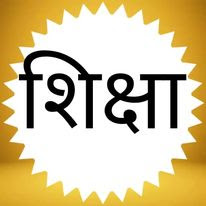Ministry of Education banned the use of helpful books such as guides, Set books (Old is Gold) and practice books at school level
A meeting at the Ministry of Education (MoE) on decided to ban the use of guess papers and guide books meant for for grades upto XII. Various publishing houses have been printing guess papers of various subjects from Grade VII to the university level.The decision comes on the heel of pressure from stakeholders to discourage the increasing use of guess papers that target the examinees with ‘just-pass-mentality’.
According to Education Secretary, the decision was taken after the ministry’s evaluation found that readymade answer books are putting a brake on the creativity of students. “Education is to become an independent. However, guess papers are making students non-laborious and education has become exam-oriented,” said.
Secretary, Ministry of Education said the ministry had received complaints from guardians that their wards were not paying attention to studies and losing their creativity. Hence, the decision to ban the sale of guess papers in the market. “Guess papers had created confusion among students and cases of cheating in the SEE exam and board exam had also increased.”
He stated that some publishing houses had published pocket-sized guess papers which helped students cheat in the exam. The ministry will direct the Curriculum Development Centre to implement the decision.
The decision, had already implemented and it is completely banned on the publication and selling of every kind of exam-focused guess papers and guides. The MoE will set up a strong monitoring body under the Curriculum Development Centre to control the publication of guide books and, if need be, seize them.
“Those who violate the rule will be booked under the prevailing law,” said. The ministry’s decision has been welcomed by guardians, book publisher associations and education experts.
“We rally around the government decisions and are ready to help the government to implement its move,” said general secretary of Federation of Nepal Book and Stationary Business.
The MoE has also decided to take action against the officials who fail to make textbooks available in the respective schools by mid-April.
“The country will be without fake students within six months,” spokesperson at the MoE. “We have also directed all the District Education Offices to get the data of fake schools and students in one month.”
president, Guardians Association Nepal said banning guess papers would enhance creativity among students but the way the decision was taken was not right. He said the government should have discussed with stakeholders, students and guardians before taking such a decision.
MoE would seek the help of police in carrying out raids at the publications that sell such guidebooks. The Federation of Nepal Book and Stationery Business has also come forward to help the government implement the ban on guidebooks that have had an adverse impact on the overall quality of education.
The federation had been seeking a ban on guess papers since 2005 as those involved in the business have been raking in huge profits at the cost of student´s future. “Around a dozen publication houses have currently employed qualified lecturers and professors to prepare the content for guess papers. These guess papers contain question and answers often repeated in the examinations relieving students of the burden of going through the course books,” Panta claimed.
Meanwhile, educationists have welcomed the education ministry´s plan but doubt the government´s ability to effectively implement it.
“Those involved in the guess paper business are likely to reach out to students by devising new ways. I doubt if the government will succeed in implementing the plan,” said educationist Biddya Nath Koirala. He suggested changing the question patterns for examinations so that students do not rely on readymade question-answer volumes.
Similarly, the government must also prioritize modification in the teaching methods. “A teacher must necessarily know how to relate practical application of a subject matter in real life situations to students. A student cannot develop his creativity unless he begins to internalize the subject matter taught,” Koirala said.
The Ministry of Education, Science and Technology has banned the use of helpful books such as guides, helping books and practice books at school level. By issuing Curriculum, Textbook Development and Distribution Directive 2076, the Ministry has made an arrangement that such materials cannot be used in any class up to class 12.
Earlier, it was mentioned that practice books, helping books and guides could not be used. The ministry has issued a new directive after the use of such books as auxiliary material was not stopped and tightened the publication, sale and purchase of such books.
Joint Secretery said that the Curriculum Development Center would not approve the sale of books printed only as question papers. The Ministry of Education has issued new guidelines integrating curriculum and textbook guidelines, school textbooks and textbook printing and distribution guidelines. "The use of collaborative books has already been banned," said. The center is currently preparing to implement the new school curriculum by passing it from next year. The guideline states that other books can be used only with the approval of the center. Such books may be used only with the approval of the Textbook Management and Evaluation Committee.
To get all NEBs' official Examination Notices you can follow following pages:
1. https://www.facebook.com/nebnepal2078
2. https://www.facebook.com/NEB2078




Comments
Post a Comment
Comment to Shiksha